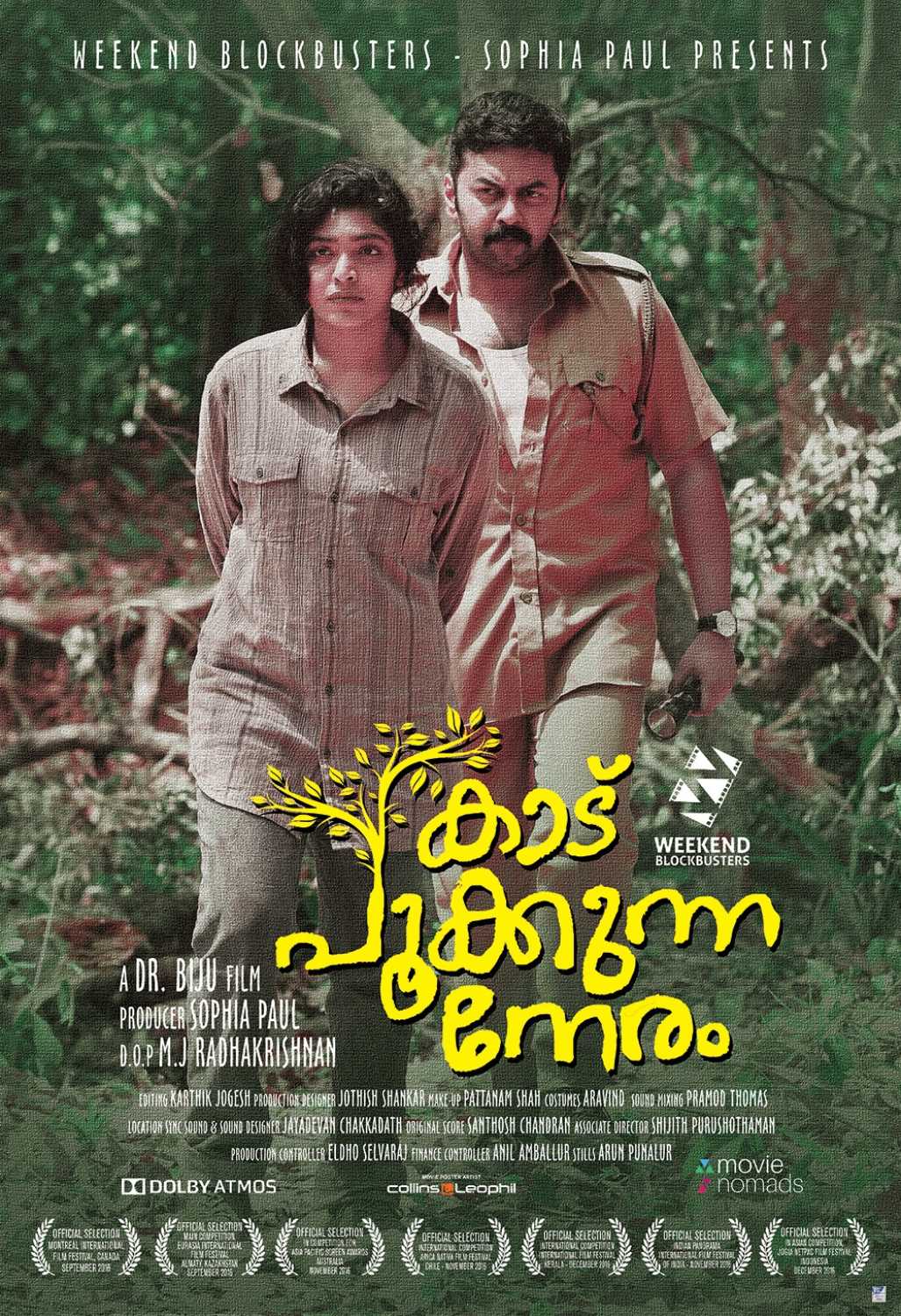In Malayalam film Kaadu Pookkunna Neram/When The Woods Bloom, which was screened at the ongoing Habitat Film festival, he takes up the issue of the struggle of the tribals against the state.
Dr Biju on the power of cinema: Film is a medium of transformation
New Delhi - 24 May 2017 16:00 IST
Updated : 25 May 2017 15:51 IST


Sukhpreet Kahlon
Internationally acclaimed director Dr Biju's (Bijukumar Damodaran) film Kaadu Pookkunna Neram/When The Woods Bloom was screened at the ongoing Habitat Film Festival.
At the screening, Dr Biju received a standing ovation for his politically and socially engaged film, which looks at the issue of Maoism from a humanistic point of view. Deeply committed to the presentation of social issues through cinema, his films engage with the issues of marginalised people in an evocative way.
In his latest film, he takes up the issue of the struggle of the tribals against the state and the easy ways in which all activists get stereotyped as being Maoists.

A police unit is sent to look into the Maoist threat in a tribal village near the forest. They set up camp in a primary school for tribal children, disrupting their activities.
One day, while searching for some suspected Maoists in the forest, one police officer chases a suspect deep into the forest and finds to his surprise that she is a woman. Although he arrests her, he cannot make his way back to the camp without her help, thus overturning the notion of the hunter and the hunted. Forced to spend time with her in the forest while trying to find his way back, his perceptions about crime and power are questioned as he becomes aware of the nature of the struggle of the tribals.
The film’s evocative music and use of traditional folk songs bring to life the narrative and lush cinematography.
In the interactive session following the screening of the film, Dr Biju, in response to a question about the relationship between the state and the tribals, pointed out that the government did not understand the real problems of the tribals, nor were they keen to understand the basic issues.
“We need to allow them [tribals] to live as they want," he said, underlining the need for understanding and empathy.
Talking about the reception of the film, the director remarked that the two questions that he has been asked repeatedly are to do with censorship and whether or not he is a Maoist! Regarding censorship, he said that his film did not get any cuts as the officer in-charge was a sensible person who understood what the film was trying to do.
He also mentioned that two days after the first screening of the film at the International Film Festival of India (IFFI), there was news of two Maoists being killed in Nilambur. So his film was screened there and was watched by the police personnel as well. In fact, several screenings of the film have been held in Kerala where police personnel have watched and discussed the film.
An audience member asked that as the film was about sensitising people towards issues and the transformation of consciousness, did he regard film as being a medium of transformation? To this Dr Biju replied, “I strongly believe that film is a medium of transformation. I’m always trying to address different issues faced by marginalised people in my films”.
In the end, when he was asked about his definition of a Maoist he responded, “This is explained in the film. It depends on your perception, who do you consider to be a Maoist?”
Related topics
Habitat Film Festival 2017

